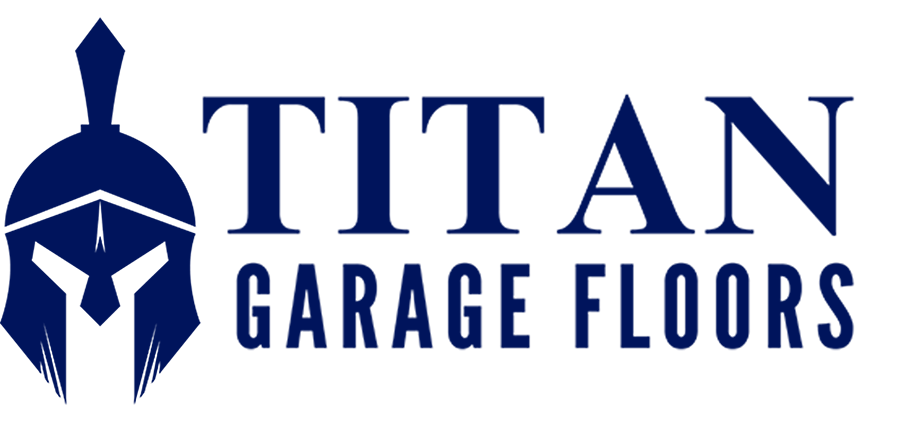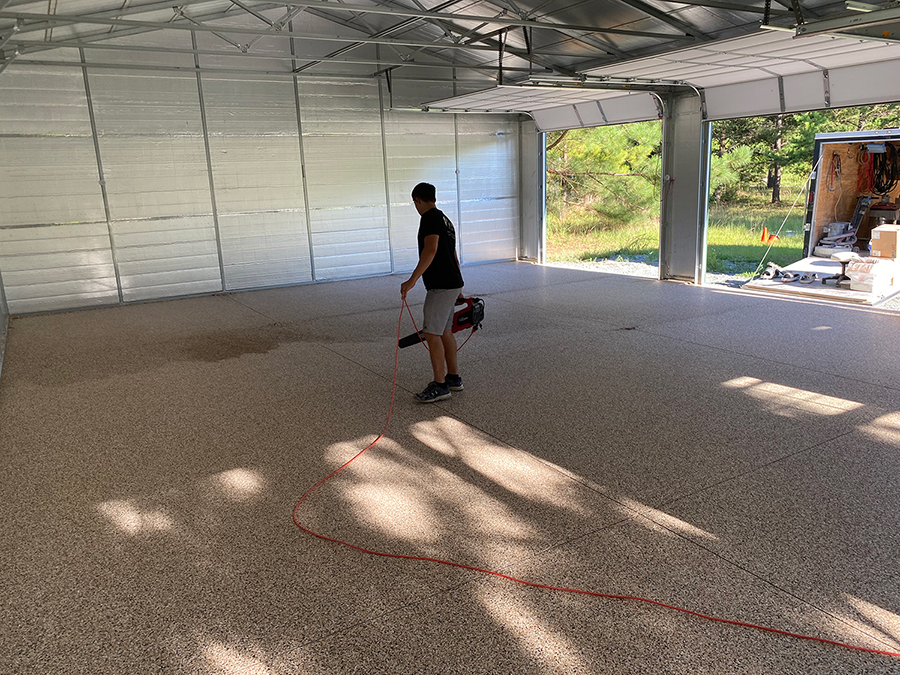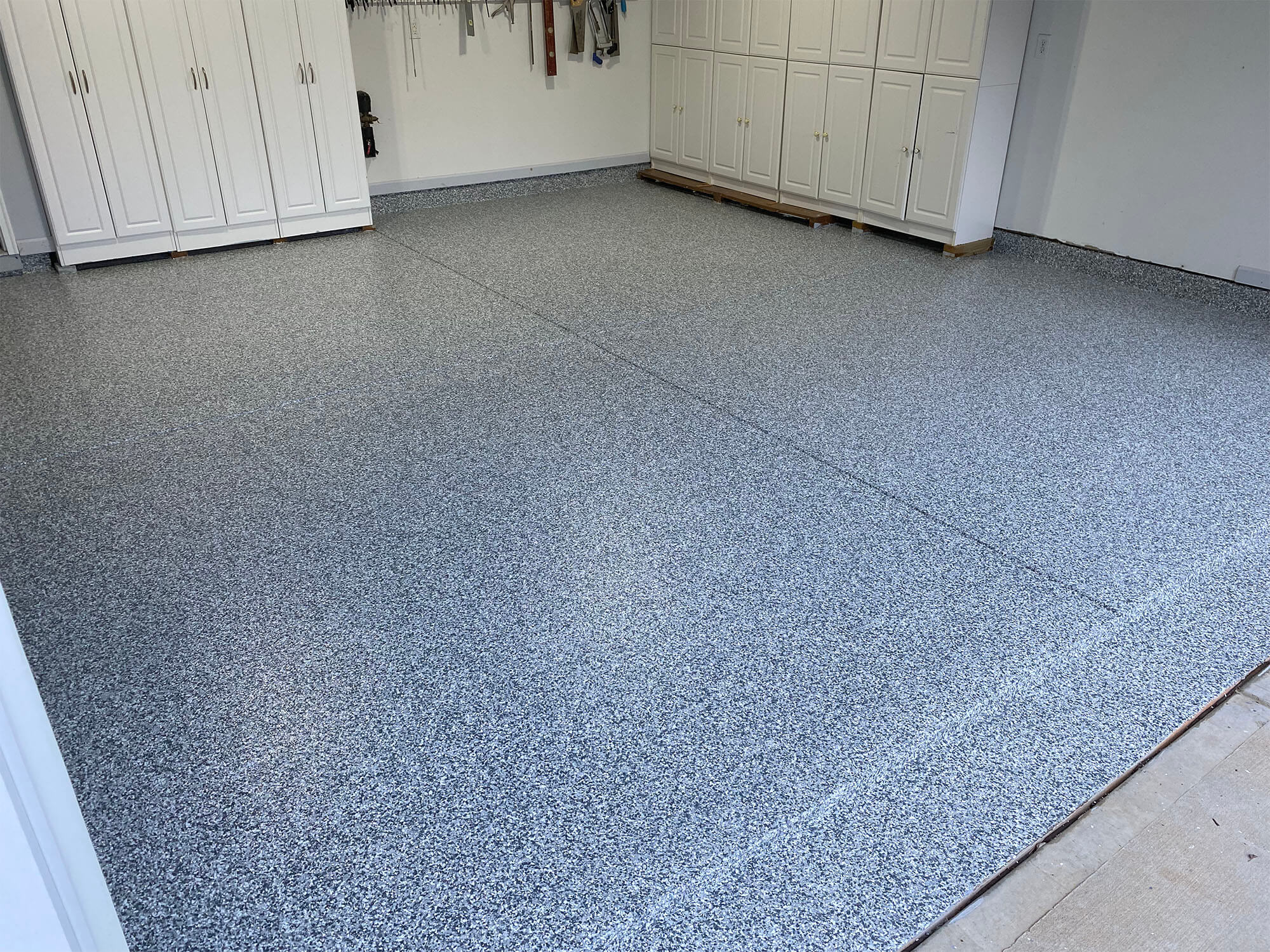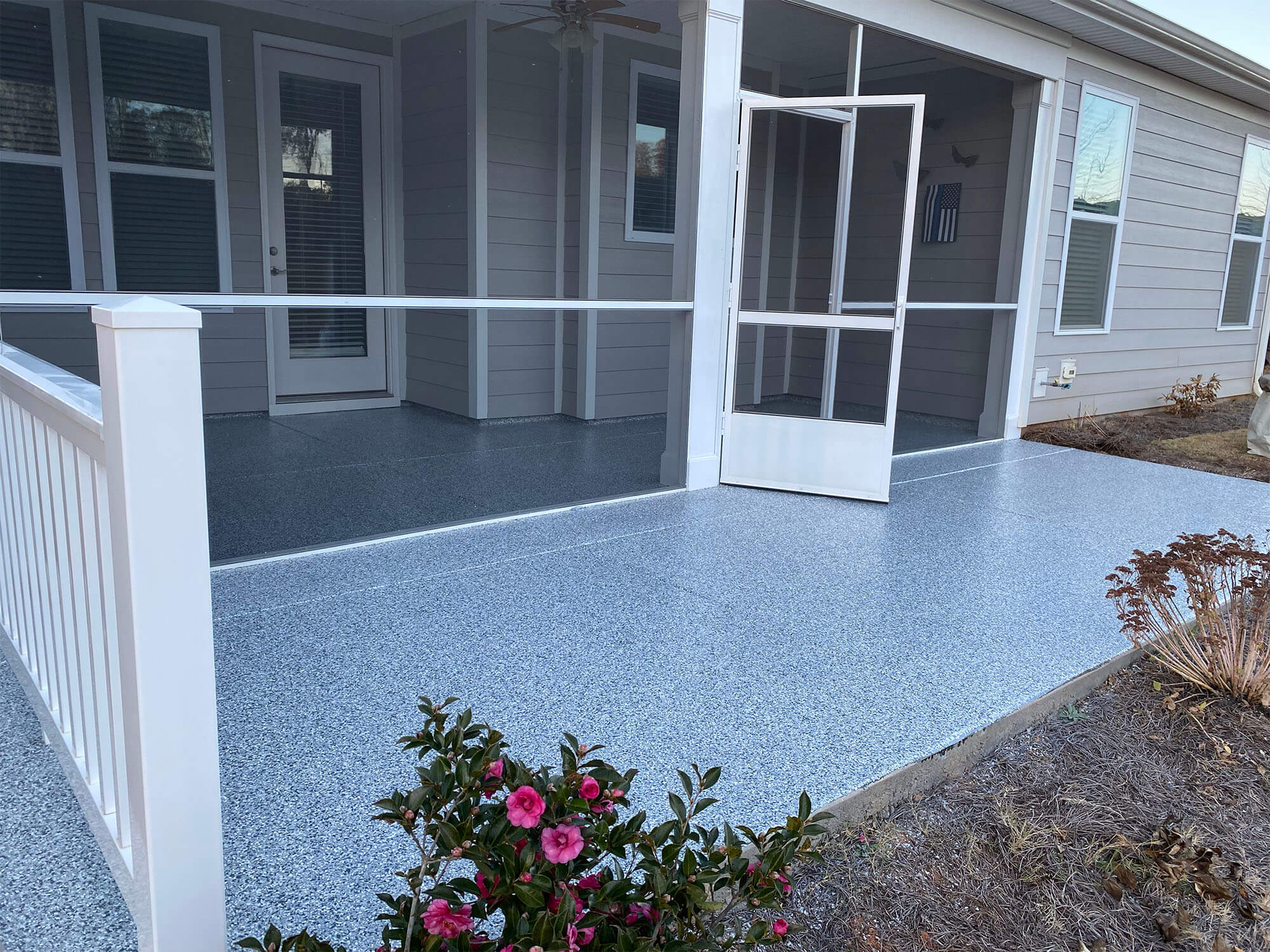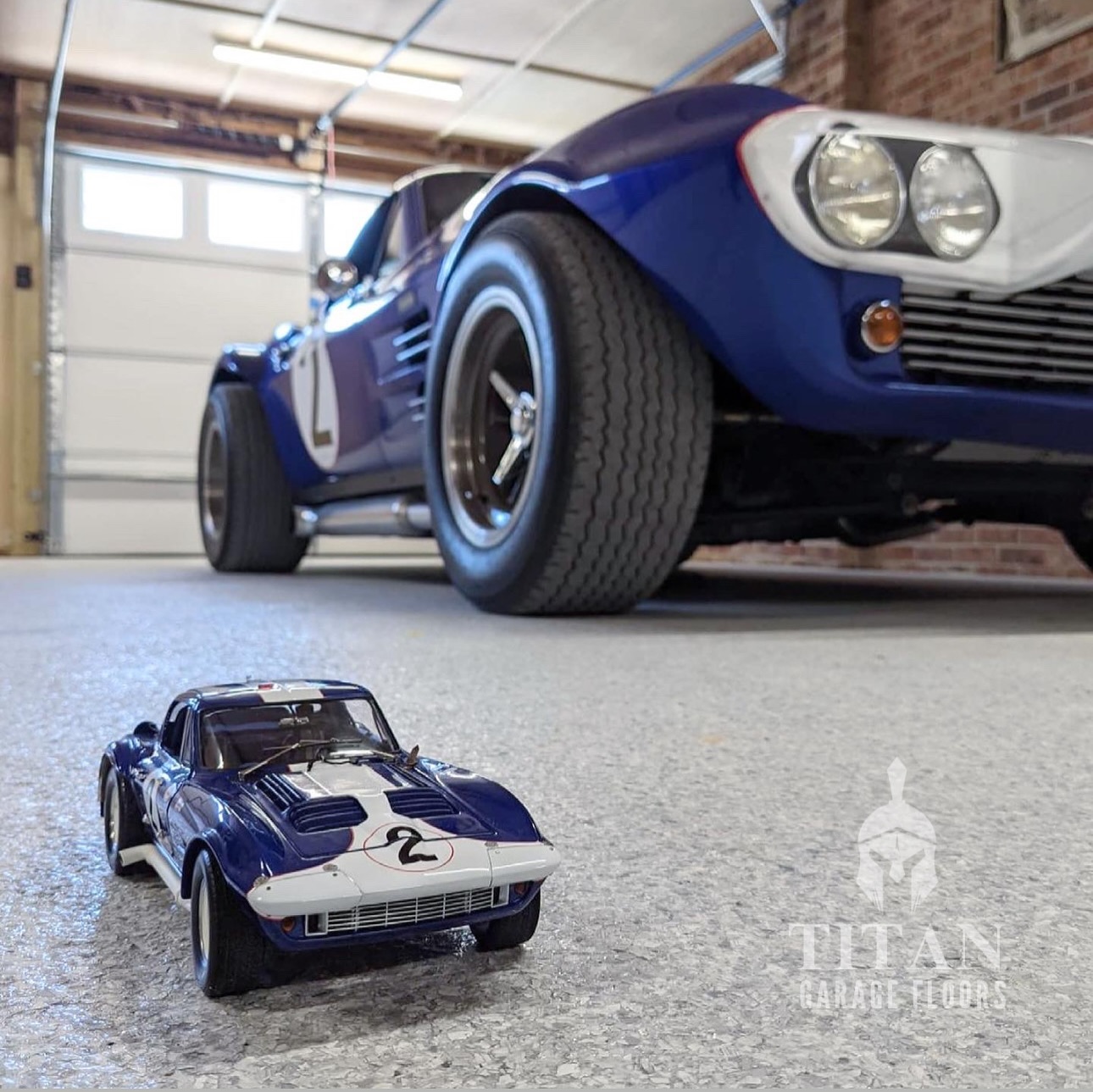Epoxy Garage Floor vs. Paint: Which Is the Better Option for Your Garage?
When it comes to upgrading your garage floor, the two most common options that come to mind are epoxy coatings and garage floor paint. Both options are designed to enhance the appearance of your garage and protect the concrete, but they differ significantly in terms of durability, performance, and long-term value.
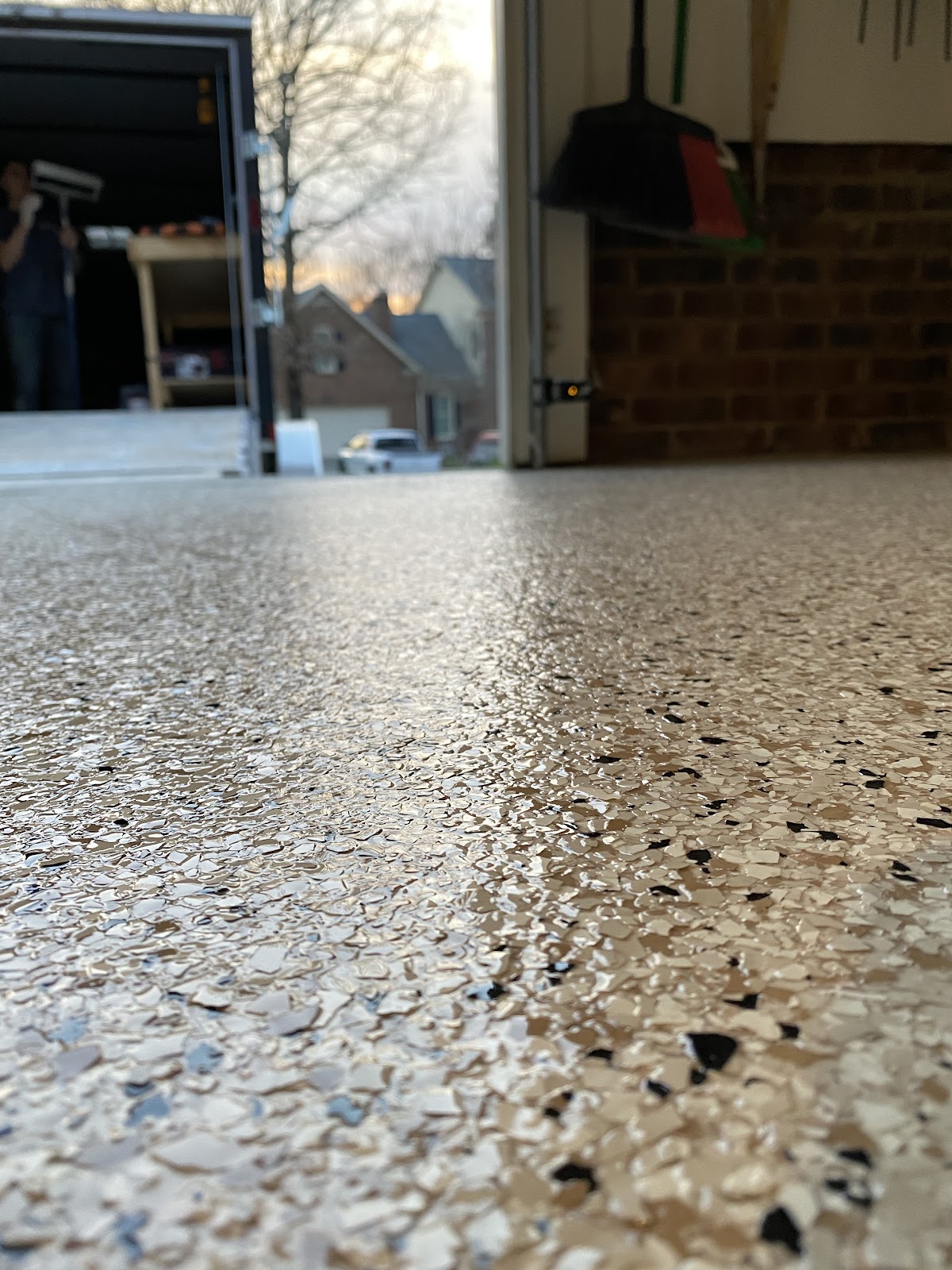
What Is The Difference?
Let’s explore the differences between epoxy garage floors and paint, and why an epoxy coating might be the better investment for your garage.
1. Durability and Long-Term Protection
One of the most important factors to consider when choosing a garage floor solution is durability. Garage floors are subjected to heavy foot traffic, vehicle movement, dropped tools, spills, and exposure to chemicals. Therefore, you need a floor coating that can withstand these stresses over time.
- Epoxy Garage Floors: Epoxy coatings are incredibly durable and can handle the heavy wear and tear typically experienced in a garage. Epoxy is a two-part system (resin and hardener) that, when mixed correctly, forms a strong, hard, and chemically resistant surface. Epoxy floors are highly resistant to abrasions, oil stains, gasoline spills, and even high-impact stress from dropped tools or heavy equipment. Additionally, epoxy is resistant to moisture and temperature fluctuations, which is essential for garages with high humidity or exposure to extreme weather conditions.
- Garage Floor Paint: While paint may look good initially, it does not offer the same level of durability as epoxy. Paint is typically a single-layer application, and it can wear down quickly under the pressure of heavy use. It is prone to chipping, peeling, and scratching, especially in areas where vehicles or tools are frequently used. Garage floor paint is also more susceptible to stains, and it doesn’t offer the same level of chemical resistance as epoxy.
2. Stain Resistance and Maintenance
One of the main reasons people opt for garage floor coatings is to protect the concrete from stains caused by oil, grease, and other chemicals. How well the surface resists stains and how easy it is to clean are essential factors to consider.
- Epoxy Garage Floors: Epoxy coatings create a non-porous surface that prevents oils, grease, water, and other liquids from soaking into the concrete. As a result, epoxy floors are much easier to clean and maintain. Spilled oil or car fluids can be wiped away without leaving permanent stains. Additionally, epoxy is resistant to mold and mildew growth, which can be a problem in damp garage environments. The maintenance of an epoxy floor is minimal—just periodic sweeping and mopping are usually sufficient to keep it looking pristine.
- Garage Floor Paint: Paint is much more susceptible to staining because it doesn’t create a sealed surface like epoxy. Spilled oils, chemicals, or even moisture from a wet car can seep into the paint, causing it to stain or bubble. Cleaning painted floors can also be more difficult, as the paint may peel or degrade when exposed to harsh chemicals or scrubbing. While you may be able to wipe up spills quickly, the long-term wear and tear will likely require frequent touch-ups or reapplication.
3. Appearance and Aesthetic Appeal
Both epoxy coatings and garage floor paint can improve the look of your garage, but there are significant differences in the quality and longevity of their appearance.
- Epoxy Garage Floors: Epoxy floors are known for their high-gloss finish, which gives your garage floor a sleek, professional look. Additionally, epoxy coatings are available in a wide range of colors, finishes, and even custom designs. You can add decorative flakes or metallic pigments to create a unique look that suits your personal style. The high gloss of an epoxy floor can also help brighten up your garage by reflecting light, making it look cleaner and more spacious.
- Garage Floor Paint: While paint may give your garage floor a fresh look initially, the appearance can degrade quickly. Paint tends to wear off more easily, and its color can fade or peel over time. The surface can also become discolored, especially if it’s exposed to automotive fluids or chemicals. Unlike epoxy, paint doesn't provide the same aesthetic flexibility or long-lasting finish. It can develop a dull, worn-out look even after a relatively short period of time.
4. Installation and Cure Time
Another important factor when choosing between epoxy and paint is the installation process and curing time.
- Epoxy Garage Floors: Epoxy coatings require more time and preparation to install properly. The concrete must be thoroughly cleaned and prepped, and the epoxy mixture needs to be applied evenly. Installation typically takes longer than paint, as epoxy requires multiple layers (including a primer, base coat, and topcoat) and curing time between each step. However, once applied, epoxy is a long-term solution that doesn't require frequent touch-ups or reapplication.
- Garage Floor Paint: Paint is relatively easy to apply and can be completed more quickly than epoxy. However, while paint may dry faster, it does not provide the same level of protection or longevity. After applying the paint, it may take several days for it to fully cure, and it is more prone to damage in the first few months of use. Additionally, paint often needs to be touched up or reapplied more frequently, especially in high-traffic areas.
5. Cost-Effectiveness
While both epoxy and paint are affordable garage floor options, the long-term value of each is different.
- Epoxy Garage Floors: Epoxy coatings are a bit more expensive upfront due to the materials and professional installation. However, the durability and longevity of epoxy make it a better investment in the long run. You won’t need to replace or touch up an epoxy floor as frequently, and it can provide years of protection without significant maintenance costs. The low maintenance and extended lifespan of epoxy make it a cost-effective choice in the long term.
- Garage Floor Paint: Paint is generally cheaper to purchase and apply than epoxy, but it requires more frequent touch-ups and reapplications, especially in a high-traffic garage. Over time, the need to repaint or repair the floor can add up, making it less cost-effective than epoxy in the long run.
6. Durability in Extreme Conditions
Garages are often exposed to extreme conditions, including temperature fluctuations, moisture, and exposure to harmful chemicals. The floor coating you choose must be able to withstand these challenges.
- Epoxy Garage Floors: Epoxy is resistant to a wide range of conditions, including extreme temperature fluctuations, UV rays, and moisture. It’s also chemical-resistant, making it ideal for garages where spills from motor oil, antifreeze, or gasoline are common. Epoxy floors are designed to perform in demanding environments, providing protection year-round.
- Garage Floor Paint: Paint is much less resistant to extreme conditions. It can peel or discolor when exposed to direct sunlight, and it doesn’t have the same chemical resistance as epoxy. Paint is also more susceptible to damage from moisture, making it less suitable for areas that experience humidity or moisture buildup.
Epoxy Garage Floor vs. Paint: The Verdict
When comparing epoxy garage floors to paint, epoxy clearly outshines paint in terms of durability, protection, maintenance, and long-term value. ****Epoxy coatings offer superior resistance to stains, chemicals, and wear, making them ideal for the high-demand environment of a garage. They also provide a professional, long-lasting appearance that doesn’t fade, chip, or peel over time.
While paint may be a budget-friendly option upfront, it simply cannot match the performance and longevity of epoxy in a garage setting. If you want a floor that’s durable, low-maintenance, and designed to last for years, epoxy is the clear winner.
Contact Titan Garage Floors Inc. for Professional Epoxy Flooring
Ready to upgrade your garage with a high-quality floor coating? At Titan Garage Floors Inc., we specialize in durable coatings that provide long-lasting protection and a stunning finish.
